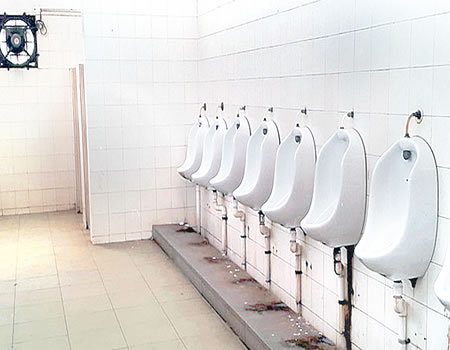Around 60 per cent of the global population, that is about 4.5 billion people, either have no toilet at home or one that doesn’t safely manage excreta. 862 million people worldwide still practise open defecation. 1.8 billion people use an unimproved source of drinking water with no protection against contamination from faeces.
Globally, 80 per cent of the wastewater generated by society flows back into the ecosystem without being treated or reused.
Only 39 per cent of the global population, about 2.9 billion people, use a safely-managed sanitation service, that is, excreta safely disposed of in situ or treated off-site.
Combined with safe water and good hygiene, improved sanitation could prevent around 842,000 deaths each year.
The above statistics, according to the World Health Organisation (WHO) and the United Nations Children’s Fund (UNICEF), reflect the human waste crisis, specifically open defecation, that warrants a World Toilet Day.
In her tweet on Sunday, Amina J. Mohammed, Deputy Secretary General of the United Nations said, “#WorldToiletDay highlights why safe sanitation is vital for the attainment of the #SDGs. The #2030Agenda for Sustainable Development calls for ending open defecation and working towards universal access to dignified sanitation services and safely treated waste water.”
In many localities across the world and in Nigeria, open defecation is not seen as problem. It is just the way of life of the people there. “It used to be the way of life of our people when the population was less, and there was much open space,” Professor Oladele Osibanjo, National President, Waste Management Society of Nigeria (WAMASON) said.
However, as pointed out by global health bodies, there are grave consequences health-wise in such localities.
In Nigeria today, “dignified sanitation services,” as far as toilets are concerned, is according to the earning capacity of the homeowner.
Treatment of wastewater is next to non-existent, and does not seem to be a front-burner issue to any of the tiers of government, Federal, State or local. However open defecation may be something the government can readily respond to.
Professor Osibanjo told Ecoscope three things the government can do about open defecation.
“Educate and enlighten the people on the health implications of what they are doing, because it is a serious health hazard for them.
“The government should build public toilets in their neighbourhoods not too far from where they live, so people can have easy access. Let the people be part of those who will manage it (the toilets).
“And there should be innovation; the faeces should not just be thrown away, convert it to biogas. Some countries like Kenya have set up an area with toilet facilities where feaces is converted to biogas for cooking.”
On the policy level, the WAMASON national president advised the Federal Ministry of Environment to include in its forthcoming deliberations on the draft National Policy on Solid Waste Management provisions to take care of indiscriminate dumping and proper handling of human faecal waste.






